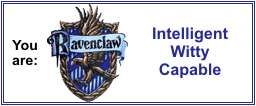THE CRITIQUE OF PURE REASON, BY IMMANUEL KANT
Kant was a terrible writer. He was honest enough to admit it, and gracious enough to publish his longing for the elegance and clarity of style with which two of his contemporaries - David Hume and Moses Mendelssohn - were born. Kant knew The Critique of Pure Reason was a problem, and his later attempts to revise or summarize it only made things worse. Still, the book is the single greatest work of modern philosophy, and has but one rival - Plato's Republic - in the history of thought. It's not only general readers who are put off by its clumsy, sluggish writing; most university courses spend so much time on the first half that they stop before reaching what Kant said was the point.
So I've taken a quote that many readers never get to, but it shows the Critique at its heart. The book seeks to determine what it means to be real. Unlike many contemporary philosophers, Kant wasn't interested in skeptical puzzles. For him, what is real and what is not was a matter of great moral and political import. The Enlightenment contested the reality of superstitions: Though witches were no longer burned in the 18th century, you could still be sent to jail for denying the reality of demons in free-thinking Holland. Other superstitions were less dramatic but more dangerous: As long as people believed that poverty and illness were God's punishment for one sin or another, they were unlikely to explore ways of eliminating them.
I have vaguely heard of Immanuel Kant, but usually in relation to philosophy - I think. Otherwise, I have never read any of his books.
Subscribe to:
Post Comments (Atom)









No comments:
Post a Comment